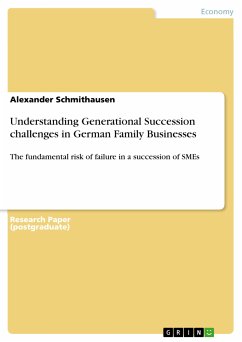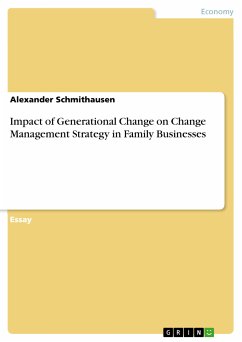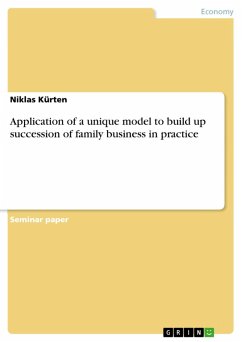Research Paper (postgraduate) from the year 2012 in the subject Business economics - Business Management, Corporate Governance, grade: 1,0, University of Edinburgh (Business School), course: Method of Research, language: English, abstract: Business succession is always a challenging time for any business, but generational change is often a critical factor in the success or demise of family-run businesses. During period of generational change, the company offers both the incumbent and the successor a great challenge. This sensitive issue thus has to be conducted with careful planning because it is one of the most critical phases in the life cycle of a company, with a lot of chances and risks linked to the process. Further successions are also complicated, with half of established family run companies successfully reaching the second generation stage, but only around three or four percent successfully mastering the handover to a third generation. The causes of these succession issues are varied, and the challenges they create will be investigated in this piece. As such, further research is needed in this area, including the specific succession challenges faced in German Family Businesses, and strategies to overcome them. The primary research question is: What are the key generational challenges faced by German Family Businesses, and to what extent do they create risks of failure for these businesses?
Dieser Download kann aus rechtlichen Gründen nur mit Rechnungsadresse in A, B, BG, CY, CZ, D, DK, EW, E, FIN, F, GR, HR, H, IRL, I, LT, L, LR, M, NL, PL, P, R, S, SLO, SK ausgeliefert werden.
Hinweis: Dieser Artikel kann nur an eine deutsche Lieferadresse ausgeliefert werden.









